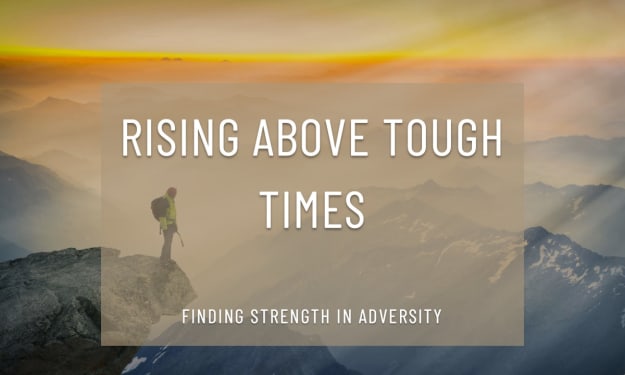The Three Big Lies About The COVID-19 Vaccine
The main arguments of anti-vaccine people are unscientific and can be easily refuted.

Vaccination against COVID-19 (when we have a vaccine) is one of the alternatives for dealing with it, probably the most important one.
This does not imply that if an effective treatment of the most serious cases is not available, it will be another essential alternative.
The best example is the case of AIDS, where effective and affordable treatments arrived long before the vaccine, which does not yet exist.
Thanks to them, the survival and quality of life of treated cases has improved significantly. But even so, we still have an out-of-control global AIDS pandemic in many countries.
And we are still waiting for a vaccine like water under the bridge. Because vaccination, when it offers broad and long-lasting protection, is the best option.
That is why what is desirable in the case of the SARS-CoV-2 coronavirus is to find one (or several) vaccines to combat COVID-19.
The bad news is that, while hundreds of scientists around the world are working hard to find them, anti-vaccine movements (and celebrities who publicly oppose vaccination, such as tennis player Novak Djokovic or singer Miguel Bosé) may jeopardize their credibility.
Vaccine skepticism

It should be remembered that these anti-vaccine attitudes are speculative opinions, not data, much less information.
They often reflect skepticism towards the system in general and towards the public authorities, be they health authorities or the pharmaceutical industrial establishment.
In this sense, in order to create distrust, it is not necessarily necessary to provide new confirmed truthfulness: suspicions thrown into the air are enough.
The COVID-19 vaccine, before it existed and its indications were known, already had detractors with extravagant speculations.
The most notorious are associated with microchips (never seen before) injected together with the vaccines, linked to the deployment of 5G (without any technical documentation) and the specter of technological mass control.
The WHO is concerned about the issue. So much so that vaccine skepticism made it onto the list of its top ten health priorities last year. It has compelling reasons.
Without going any further, the elimination of polio has been a WHO goal for more than two decades.
Anti-Western positions in Afghanistan and other areas controlled by the Taliban put the brakes on vaccination campaigns in these countries, where a certain level of transmission and new cases among individuals in under-vaccinated populations remains.
Since these outbreaks, new cases of imported polio have appeared in Africa and Southeast Asia associated with unvaccinated travelers.
To make matters worse, in recent years we have seen outbreaks of hundreds of measles cases in Europe and the United States, caused by pockets of poorly vaccinated - or unvaccinated - individuals who are partially protected by the rest of the people around them who are massively vaccinated.
Viral circulation is present and fatally ends up turning unvaccinated individuals into cases in populations that have had none for years.
The solution is education
For the antivaccine discourse to fall on deaf ears, especially with a view to solving the current pandemic, the ideal would be to improve and maintain health education from schools and throughout life, including, very importantly, the mass media.
It is necessary to generate knowledge and trust in science, to teach people to distinguish between information and opinion, to verify the source and consistency of the data reported, to move away from the spectacular and false controversies between unequals.
Safety experts who have investigated vaccine skepticism identify a small group of diehards (less than 5% of the population in the United States) who can be described as "highly convinced anti-vaccine", active militants on the Internet.
Then there is the social group of "undecided" for various reasons, which can reach 30% of some populations.
The latter are the most influenced by negative opinions, and susceptible to be well informed to avoid drifting to the antivaccine fraction that finally do not vaccinate their children.
How to refute their arguments

This is how to refute three of the most recurrent arguments of antivaccine opponents against COVID-19:
1. "It could be that the final vaccine will be partially effective."
This is true. But even in this case, if vaccination were to succeed in reducing transmission and mortality by a significant percentage, it would already be of great use in mitigating the impact of outbreaks.
Without going any further, the flu vaccine every winter is an example of vaccines that have modest efficacies (60-70%).
This is due both to the fact that the dominant influenza virus is different in each season (new vaccines have to be made each year) and to the fact that there are always different influenzas circulating in different proportions in each country (and only some of the types are covered by the recommended vaccines).
The result is that there are still cases even among those vaccinated, generating a feeling of ineffectiveness and confusion.
But these are vaccines that each year save many lives among the adult and elderly population.
The world regulatory offices grant licenses for use only after independently verifying that the vaccines meet efficacy and safety requirements and that the indications (who to vaccinate as a priority, how many doses, etc.) are balanced between the number of cases they prevent (or mitigate the severity) and the cost of the vaccination campaigns.
Most vaccines have very high efficacies (90-95%) and in well-vaccinated countries there are many infectious diseases that have practically disappeared.
2. "There is a lack of transparency on conflicts of interest".
The collaboration of the academic world with the industrial world is essential, but at the same time it generates potential situations of conflict of interest.
Transparency of information is a necessity in health issues and especially in ambiguous situations: moderately satisfactory results, debatable conclusions, dubious interpretations of data, inconsistencies between different studies, etc.
But it must be admitted that it is complex and must be resolved by committees of independent experts.
The academic world has developed mechanisms to control conflicts and manage conflictive situations, for example, by explaining in each public intervention (conferences or publications) the relationship between the professional and the industry that produces the medication or vaccine.
This issue is important, especially in the development phases and in the face of initial results, when information is scarce.
Something different happens when a vaccine has passed all the efficacy and safety controls and the indications have been established by all the national and international scientific and health committees, as is the case with the expanded vaccination schedule and the latest vaccines introduced (human papillomavirus, HPV).
It is therefore imperative that physicians and health care providers inform the population and support the introduction of vaccination as indicated.
3. "Vaccines are unsafe".
The criteria of (in)safety of vaccines or their adjuvants - that is, the substances included in the vaccine injection that enhance the antigenic stimulus - have always been put forward by the anti-vaccine movement.
And this despite the accumulated experience of hundreds of millions of doses both in controlled studies and in generalized vaccination programs in all international contexts.
But the truth is that vaccine product regulatory agencies thoroughly monitor vaccine efficacy and safety before licensing or indicating public use, and continue to monitor safety for years after introduction.
It is highly unlikely that an unwanted side effect would go unnoticed by systematic surveillance networks.
Despite this, we continue to see open attacks on vaccination without any new studies to justify it.
Research is long, complicated and expensive. Doubt, on the other hand, is free.
About the Creator
creatorsklub
I write about tips and strategies for enhancing life. Some advice and insights because life is already to hard to be alone on it!
Enjoyed the story? Support the Creator.
Subscribe for free to receive all their stories in your feed. You could also pledge your support or give them a one-off tip, letting them know you appreciate their work.






Comments
There are no comments for this story
Be the first to respond and start the conversation.